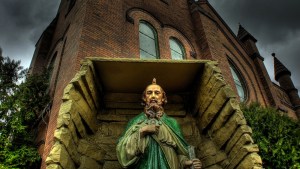We are all looking for messages of hope, and I am no exception. Recently, I was reminded of something I have known for a while, but suddenly clicked with me as it pertains to hope. Instead of seeking hope from an outside source, I realized that sometimes, it happens mysteriously from within.
We can look to science for proof of this.
Every year, thousands of drug studies are conducted across the world on all types of medications. Since the 1950s, most studies have one thing in common: they use a placebo. By definition, a placebo is an inert substance, such as a sugar pill, that is given to patients as a way of testing whether or not a drug being studied really works. For some time, scientists have realized that even when a pill doesn’t possess any medicinal qualities, individuals can still show a reduction of symptoms and improved functioning. These changes aren’t just imagined, as documented effects on the brain have been seen when this occurs. It is why over half of doctors in a 2008 study admitted to prescribing a placebo at some point.
However, placebos don’t work for all conditions. Genetic conditions, cancer, even symptoms such as chronic hypertension don’t typically show any response to a placebo. But for any ailment that the brain can moderate itself, placebo effects can be very real. This can include chronic pain conditions, irritable bowel syndrome, ulcers, and even movement disorders. For example, a recent study on orthopedic knee pain found that long-term, functional outcomes were actually as good or even better for a group of patients who simply had their knee opened and closed than those who actually had the orthopedic surgery itself. A recent debate has even intensified over whether the
is largely associated with the placebo effect, and not the medications themselves.Yet the placebo effect does not seem solely attributable to a medication or procedure. Researchers in this area have noted that improvements seem to come through the entire process of seeking treatment, such as setting up an appointment, meeting with the doctor, and discussing symptoms and intervention options. It has long been known that simply setting up an appointment with a therapist can improve mental health symptoms even before the actual appointment occurs. Undoubtedly, the placebo effect is not simply a physical reality, but a complex interaction of social, psychological, and physical experiences.
If we stopped there, though, we might be leaving something out. While the medical community points to the placebo effect as just one example of how suggestible human beings are, we might consider what the religious community would have to say. This discussion begins with the theological virtue that all of us know well: hope.
For thousands of years, long before the advent of modern medicine, healers of various kinds have used various substances and rituals in an attempt to “heal” an individual of maladies, whatever sort it may be. Questions have long arisen about the validity of these various methods of healing. Yet the focus of these questions is most often on the healer’s capacity for true healing, not necessarily the capacity of the sick themselves to be healed. Here is where the placebo effect enters the equation.
As Catholics, the placebo effect provides us with a unique consideration of where the natural intersects with the divine when it comes to those who are healed. As even veteran placebo researchers acknowledge, there is something mysterious that occurs when people feel a sense of hope that an intervention will render them better even when the treatment turns out to be fake.
It suggests that healing can occur from within, and that the virtue of hope intersects with our humanness and our divinity to make this possible. It brings to mind what St. Paul (1 Corinthians 3:16) says: “Do you not knowthatyou yourselves areGod’stemple,and thatGod’sSpiritdwellsinyou?” Maybe the induction of hope alone opens ourselves to God’s healing potential within us, or maybe we have been designed full of healing potential if we open ourselves to hope. Or maybe it is both, or even more.
Regardless, whether you are an atheist or a believer, the placebo effect continues to defy modern science, and suggests that we are more than systems and substances. All the MRIs and PET scans in the world will never explain how the feeling of hope, or any emotion, thought or belief for that matter, can lead to physiological changes that in turn drive new thoughts, feelings, and actions. We are spiritual beings whether we believe it or not as there is an unseen reality that can give us hope that each day might be better. And it doesn’t take a dummy (pill) to remind us of that.

Read more:
Feeling alone and depressed? Pray this prayer to St. Jude for hope

